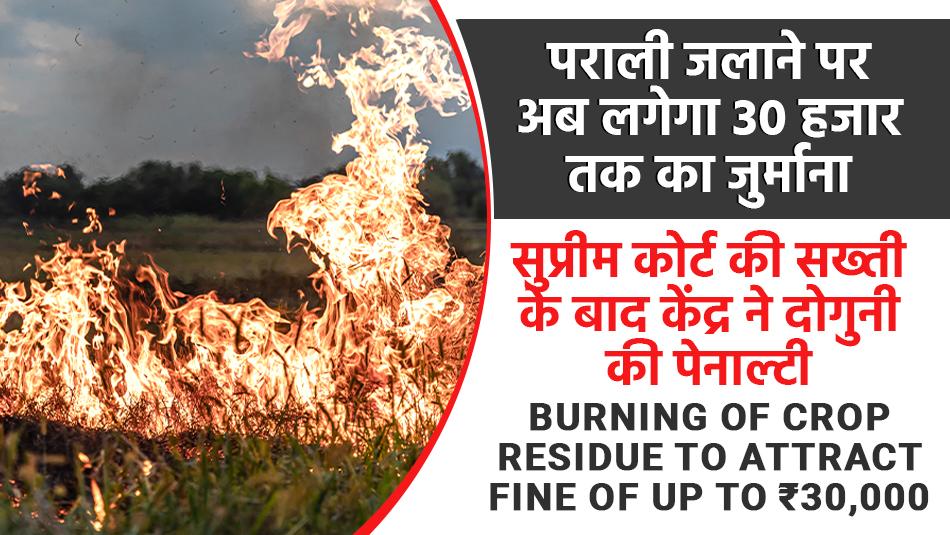Welcome to Krishi Dunia.

The issue of crop residue burning has been a major concern for several years, especially due to the rising pollution levels in Delhi and surrounding states. In response to this, the central government has taken strict action by increasing the penalty amount for burning crop residue. Now, farmers will face a fine of up to ₹30,000 as environmental compensation. Let’s take a closer look at this new regulation.
On November 6, 2024, the central government notified the Amendment Rules 2024 on Environmental Compensation for Crop Residue Burning. These rules increase the rates of environmental compensation (EC). Officials in Delhi, Punjab, Haryana, Uttar Pradesh, and Rajasthan have been instructed to implement this new rule with immediate effect.
Revised EC Rates (Per Incident of Crop Residue Burning):
| Land Area | Previous EC Rate (₹) | Revised EC Rate (₹) |
|---|---|---|
| Farmers with less than 2 acres | 2,500 | 5,000 |
| Farmers with 2 to 5 acres | 5,000 | 10,000 |
| Farmers with more than 5 acres | 15,000 | 30,000 |
The Commission for Air Quality Management (CAQM) decided to increase the penalty due to the growing risks of pollution. The air quality in Delhi NCR and surrounding regions has deteriorated to hazardous levels, with crop residue burning being a major contributing factor.
The CAQM has directed authorities in Delhi, Punjab, Haryana, Uttar Pradesh, and Rajasthan to implement these new rules immediately. The purpose of these regulations is to control air pollution and protect public health.
Impact of Crop Residue Burning on Pollution: Burning crop residue releases harmful gases such as carbon dioxide, carbon monoxide, sulfur dioxide, and other toxic pollutants into the atmosphere, exacerbating air pollution. This leads to various health problems, especially respiratory issues among children and the elderly.
Strict Stand on Environmental Compensation and Air Pollution: Given the severe air pollution in the Delhi NCR region, the CAQM recommended an increase in the environmental compensation amount. Following the commission’s directives, all relevant authorities are authorized to impose and collect environmental compensation from farmers.
Conclusion: The decision to impose stricter penalties for crop residue burning is a crucial step toward reducing air pollution and promoting environmental protection. It is essential for both the government and farmers to work together to find a long-term solution, ensuring cleaner air for all.